Вы здесь
Маран. Общая тема.. Страница 207 из 288
Самые популярные темы
- мини куры
- Юрловская голосистая порода кур
- Французская мясная-кто что слышал или знает?
- Орловская порода кур. Часть 2
- Кучинские Юбилейные куры - проверенная временем...
- Маран. Общая тема.
- Генофонд покупка инкубационного яйца
- ГЕРГЕБИЛЬСКАЯ ПОРОДА КУР (Ундуч)
- Советы начинающим птицеводам от Ираиды Иннокентьевны
- Откорм Бройлеров (ответы на вопросы)


Хороший " Урожай"
Да, супер! Поздравляю!
Всем большое спасибо! Главное, чтобы цвет с возрастом не сильно размылся - у молодок по идее всегда яйцо темнее должно быть. По крайней мере в инкубационных из которых они вылупились было так - чем крупнее яйцо, тем светлее. Были штук 6 по 85 грамм - самые светлые, примерно как недавно Zavetnij свое показал. Была одна коробка от молодок - самые мелкие и одни из самых темных. Так что посмотрим что в начале сезона дадут. Хочу их осенью максимально долго держать на улице, потом в курятник без отопления до +5 и с освещением, соответствующим реальному световому дню и так до декабря, а там уже начать подогревать и прибавлять освещение. Как думаете?
Главное, чтобы цвет с возрастом не сильно размылся - у молодок по идее всегда яйцо темнее должно быть. По крайней мере в инкубационных из которых они вылупились было так - чем крупнее яйцо, тем светлее. Были штук 6 по 85 грамм - самые светлые, примерно как недавно Zavetnij свое показал. Была одна коробка от молодок - самые мелкие и одни из самых темных. Так что посмотрим что в начале сезона дадут. Хочу их осенью максимально долго держать на улице, потом в курятник без отопления до +5 и с освещением, соответствующим реальному световому дню и так до декабря, а там уже начать подогревать и прибавлять освещение. Как думаете?
Не факт .
Хорошее решение.
Нормально .
Зачем ?
Надо .
Ну имеется ввиду что уже морозы будут, я ж в Замкадье! ИЯ уже к концу декабря-январю нужно будет опять же, тогда и рассажу их семьями и начну греть курятник до +15, если холодно будет Витаминчиками пропою, рыбкой покормлю... что еще курам для счастья надо
Витаминчиками пропою, рыбкой покормлю... что еще курам для счастья надо 
Красивое яйцо а мараны какой окрас
Мараны сразу 3 окраса - черные серебристогривые, голубые серебристогривые и голубой сплэш Молодочки, только занеслись недавно.
Молодочки, только занеслись недавно.
Пожалуйста, петух в профиль.
И на бегу ))
Красавчег! Спасибо
Спасибо 
Спасибо!
Вроде он похож на изображения, что Михалыч выкладывал.
Еще одна курочка занеслась , цвет уже радует , вес 50 гр .
Вести из курятника: клуша бросила цыплят.
Это она за деточкой бегает, клюнуть хочет...
Цыплята маран . Chickens Marans BCC , NCC .
Опять не понял , Зачем ? Греть .
Marans Tails
As we turn our page back to my earlier posts on Marans Type, we understand that Marans are long backed, wide, deep bodied birds possessing good body balance. Marans ideally should embody a look of substance and solidness from their substantial body weight. This means the Marans body must maintain a reasonable amount of girth both in front of their shanks, and additionally, an equally well formed rear end and abdominal region.
Maintaining width in the rear quarters is essential. It is also a sign of good abdominal capacity, translating into the ability to eat well, and thus, transferring that energy into egg laying ability and meat. Being a dual purpose heritage breed- this is a win/win situation for breeders.
Abdominal capacity is the distance between the tip end of the keel (body depth) and the two pubic bones (body width). Although our US Standard does not address the actual size of the Marans abdomen... the official French Standard calls for, "Abdomen: Well developed," so... coming from the source of Marans, the French club suggests a fair amount of abdomen on the body of the breed to make the body balance appear correct.
This front body to rear end wideness in the bird also translates into width in the tail as well. Our US Standard calls for a “full” tail. Not a thin, flat, narrow or pinched tail at the top. (Pinched tails are when the tail feathers touch or hug too closely to each other, especially at the top of the Pope's nose.). The US Standard also allows for the tail angle to be 45 degrees (to 65 degrees). Although 45 degree tails are a far lower angle, this low angle is also harder to achieve such a low angle consistently, so tail angles within this range are considered acceptable.
The Marans tail should have an appearance of an open "V" in back from the rear view, with an "open clam" look vs, a "closed clam" appearance of the tail feathers. This is where the upper tail feathers crowd or touch. This "closed clam" appearance means the very rear view of the bird is usually narrow, or the width does not follow true to the end of the bird.
Sometimes, I notice on some lines, the pinched tail trait showing up on hens. It can happen on cockerels as well (see blue cockerel photo), but unfortunately, hens pass this trait down to their cockerel sons. So hens and pullets should always be checked for narrow or pinched tails. (If one pinched or thin tailed hen is really a good hen in all other aspects, type/color/shank feathering, etc. including egg color, a breeder could try single mating the female to a cock bird with a wide, open "V" shaped tail, then cull hard on her young to open the females tail.)
Pinched, narrow tails are as harder to remove as high tails and squirrel tails once they are imbedded in your flock's genetics after a few generations. So, don't wait long to tackle this trait.
The US Standard states for the males states, "TAIL: Full, rather short, carried at an angle of 45 degrees above horizontal. Main tail feathers: Broad and overlapping (slightly), shorter than average. Sickles: shorter than average. (Think of the length of a RIR sickles as being considered average length.) The official French Standard states, “TAIL: “Strong at its base,” quite short, fairly up without going over 45 degrees.” So it is easy to surmise from the French Standard description of the tail, that high tails and pinched tails are not desirable in Marans in France as well.
Here are also some other Marans tails issues to watch for.
Wry tail. This is where the tail will stay turned to one side much of the time. Sometimes the turn can be barely perceptible (see photos). Some birds may just shyly favor one side when you are near. You need to handle the bird, to feel the bird's Pope's nose to determine if the wry tail issue is a defective skeletal condition, or shyness toward you. Sometimes wry tail has been said to be caused from Rickets, or a vitamin deficiency. True wry tail birds should never be used in a breeding program as the trait is genetic, and carried forward.
Long tails. Marans ideally have... "Full, short tails with short main sickles in the males" according to the US Standard. So, if you breed hens with long tails, all your stock will eventually all end up with long tails. Look to your female for control in tail length and width in your males, and to the males tails to pass on long tails to their pullet daughters. Long sickles are not desired but this issue can be worked with controlling the females tails.
White in tail and parasitic white underfluff. Although you can show a bird having a 1/2" or less positive white feather in a show ring without having a DQ, it is not recommended to breed white in breeders as this trait can be very invasive and hard to work out later. It is in many lines, and working it out can be done... with much effort. But, it take a long time, and requires a lot of hatching and culling, so it is not recommended for most new breeders, if you are going to try to eradicate it. (I recommend any white removal as a side project unrelated to your main flock, not as your main flock.). It's better to start with stock without white.
Split tail. Sometimes seen on larger, wider males, the top sickle feathers split down the center down toward both sides of the body. Fault, do not breed, this trait passes on.
Twisted feathers. (A feather twisting or turning at an odd angle.) Every once in awhile one feather or so may be bent, or broken. You can try to pull the feather, to see if the feather will grow back in straight after a few months. This can be a genetically passed trait, so do not breed it in or your cockerels will start having twisted feathers. So, pull out a twisted adult feather out then see if the bend returns. (Ignore youngsters twisted feathers, youngsters can change drastically until adulthood.)
Squirrel tails. These are tail feathers that exceed the 90 degree angle, and should be avoided. High tails are a very difficult trait to breed out.
And lastly, a male's tail that is far too open. It can occur on some of the bigger, wider birds, and rarely occurs on a narrow bodied bird. You can see air and width around each feather, and some feathers may twist. This is another fault to avoid. However, if there are no twisted feathers, such a large male can be used for narrower hens with narrow tails for correction purposes, and the young culled as desired.
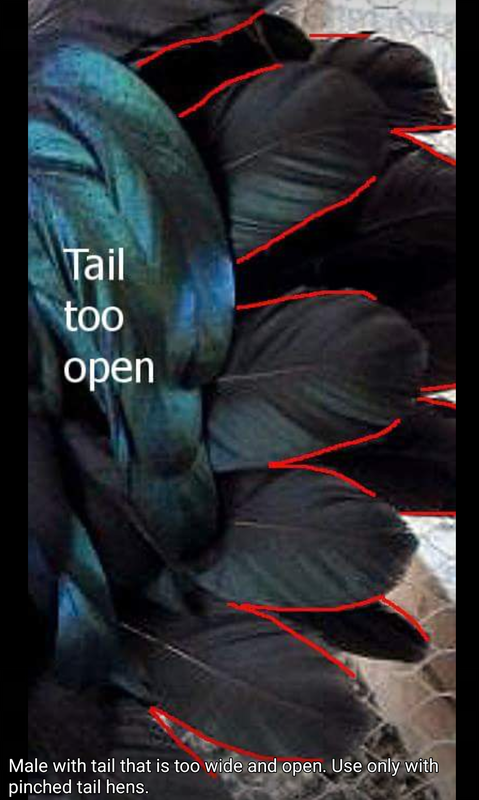

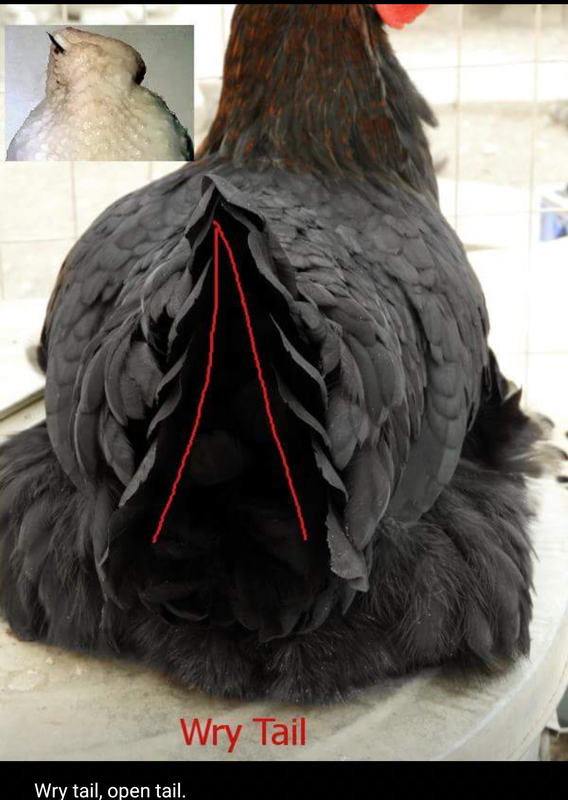
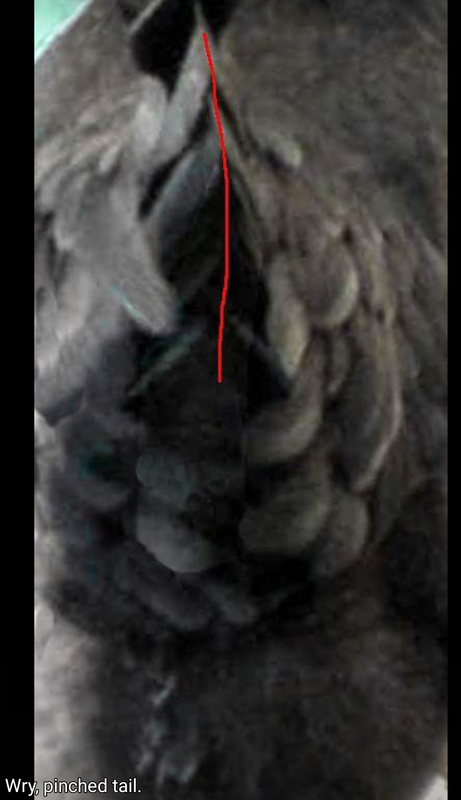
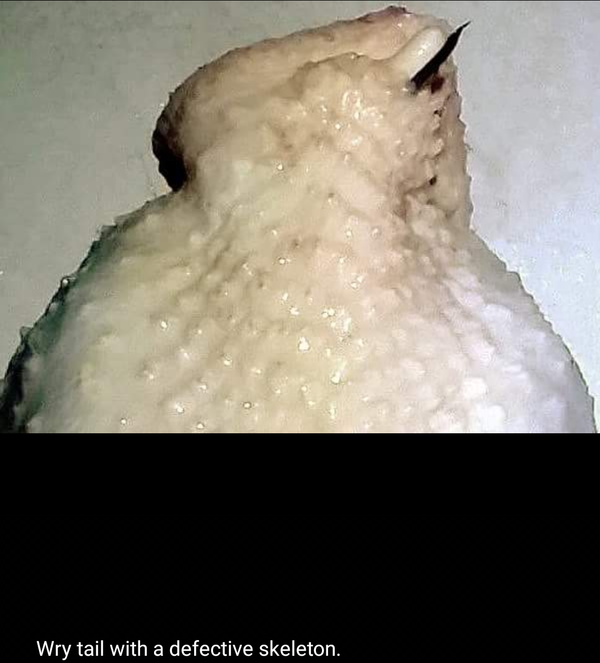

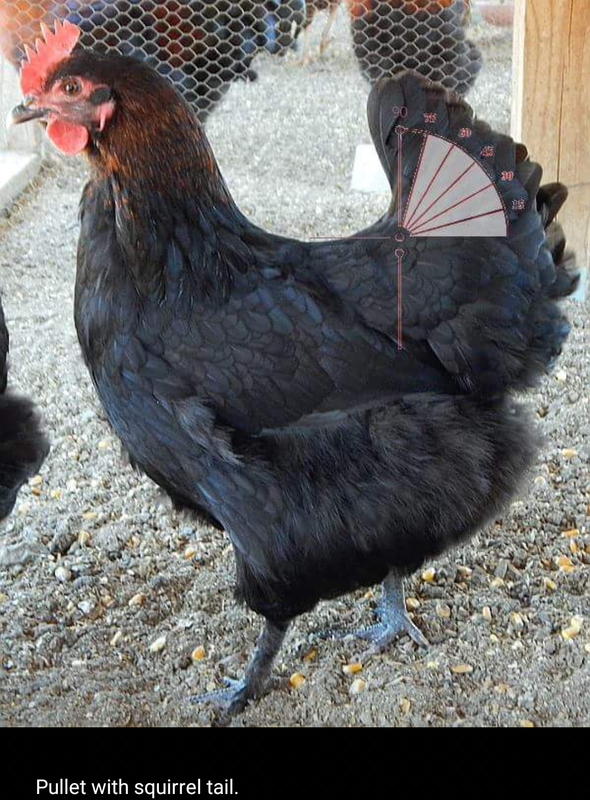
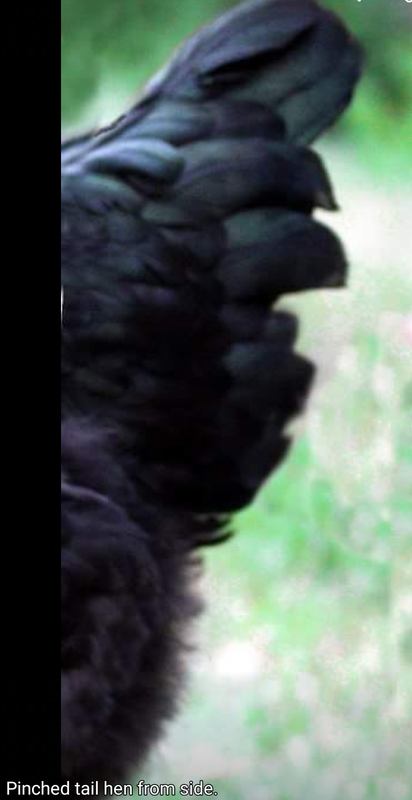
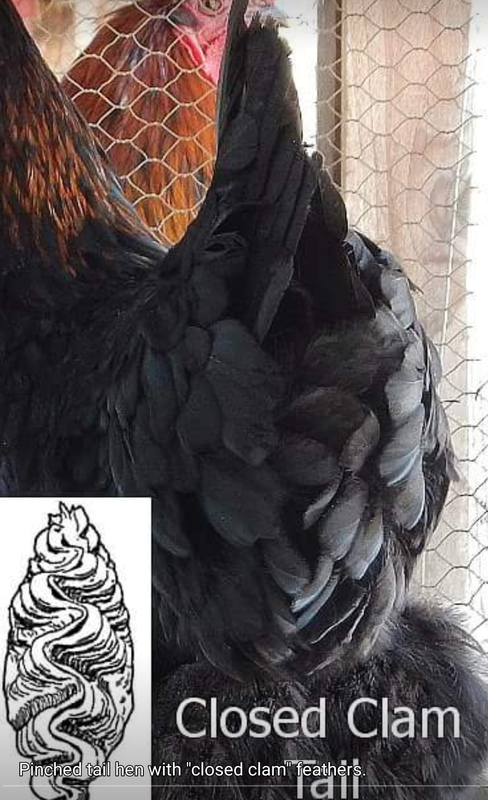
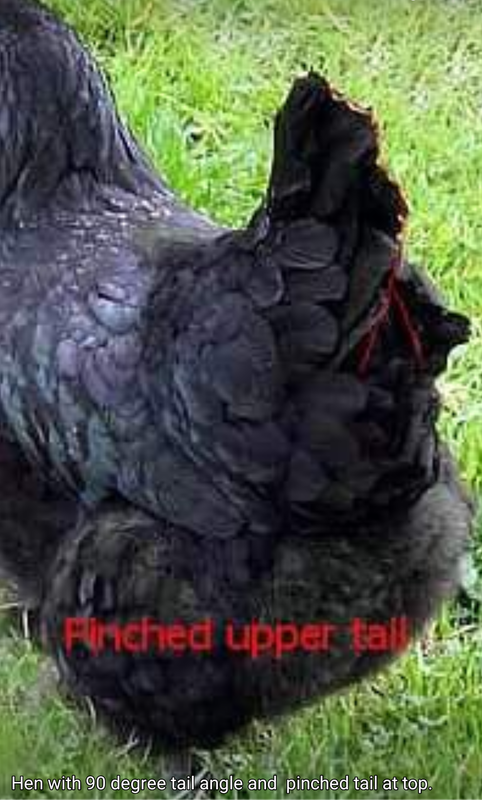


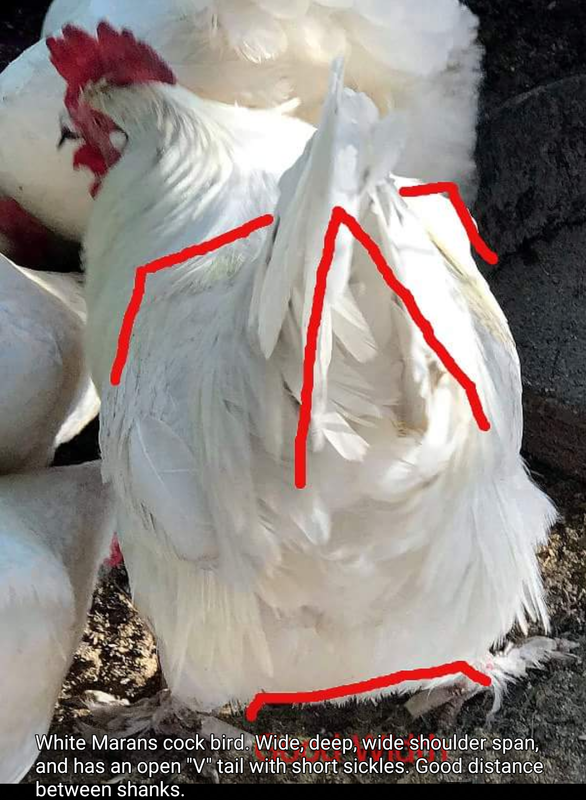


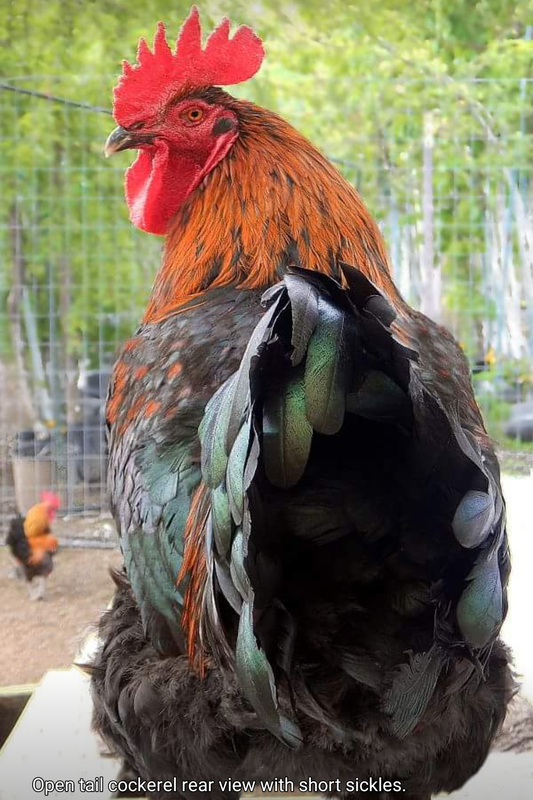

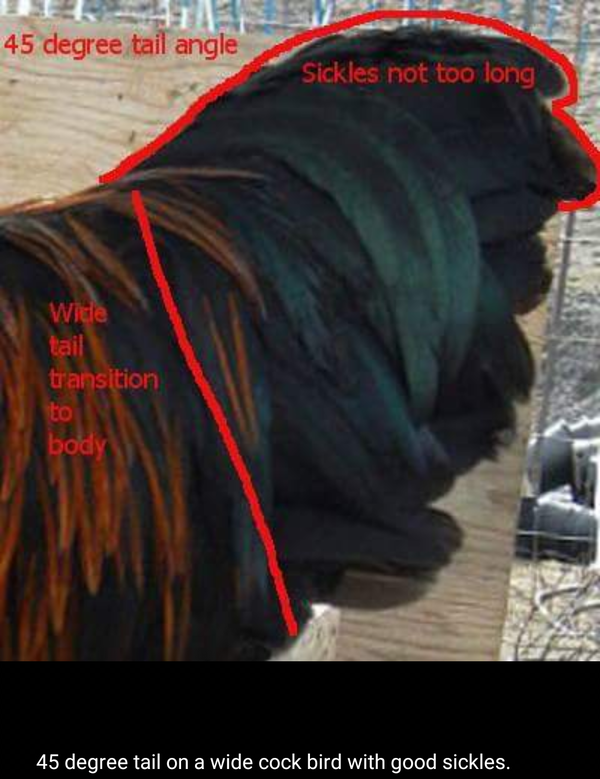

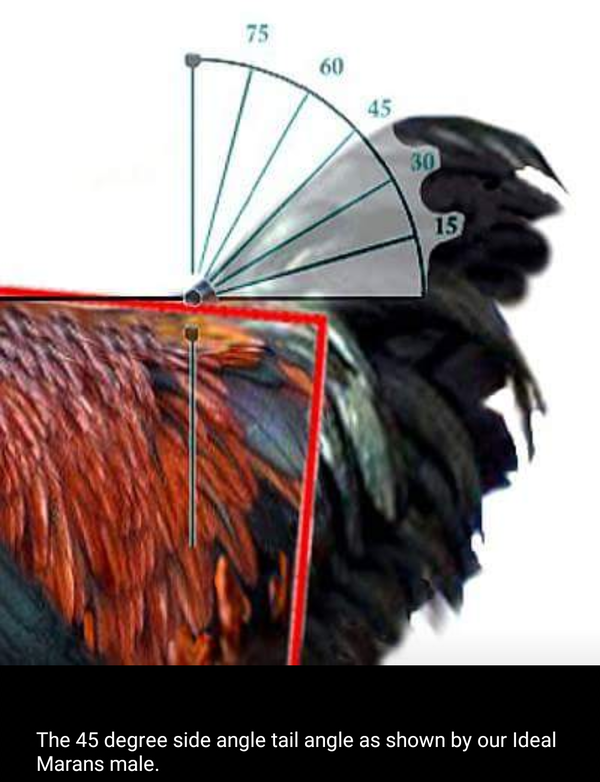
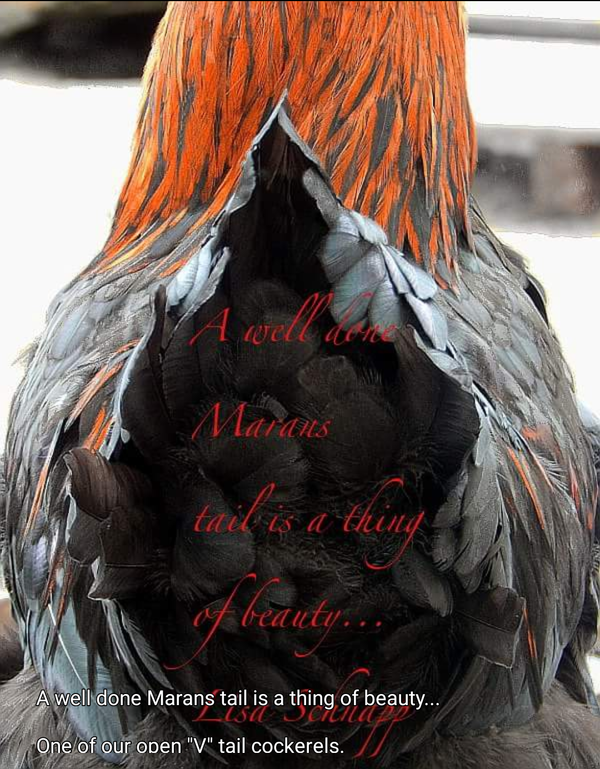
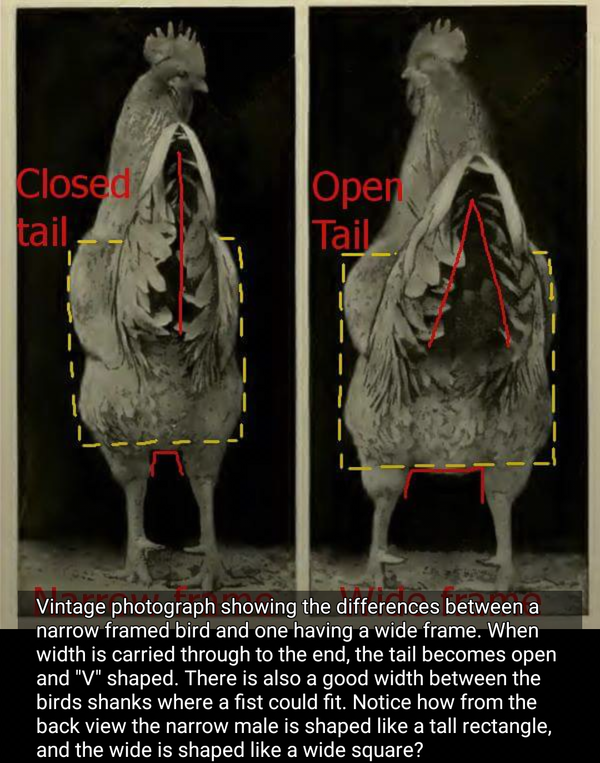
(https://facebook.com/groups/1385787165073453?view=permalink&id=211903621...)
Лапусечки, цыплята всегда очень умильные
 , калила́ска .
, калила́ска .
Но и подрощенные тоже интересуют, публикуйте фото и взрослых, у меня на маранов еще глаз не набит )) ,по этому
А это мои подрощенные , цветочек ), количество серебра у всех разное.
Им 2 месяца.
...классное контрастное фото!..
Здравствуйте уважаемые форумчане! Вот у меня сомнения по поводу петушка марана, мне кажется что он не чистопородный, а всё-таки помесь марана с кохом. Живой вес 3.3 кг. Ноги толстые,опереные. Взгляд как у орла (грозный). Что скажите?
Как часто встречается белопёрость у чёрно медных? Наличие белого пера это приговор к кострюле ил и ждать перелиньку?
Встречается , и довольно часто . Кастрюлькой можно повременить . Тут ситуация такая , бывает все хорошо , линька прошла , перо вылезло или наооборот , было пропало .
Мясо и яйцо маронов просто супер. Мои первый год несутся уже 8 месяцев без отдыха каждый день.
А такая оперённость лап достаточная или мало?
И ещё вопрос, стоит ли оставлять петуха с голыми ногами? С одной стороны возрастает шанс получить в потомстве большое колчество голоногих цып, а с другой стороны нет достойного петуха среди особей с оперёнными ногами или не стоит?
Спасибо
По мне, так это последний признак за который бы я переживала. По стандарту породы у маранов плюсна слабо оперенная. Конечно, для выставочного важно все, а для работы и с парой перышек можно использовать, особенно если кур с сильным оперением подобрать, как в моем случае.
Критикуйте.
Петух подрос, младших (из людей) гоняет, зверюга.
О... сплэшик. Я себе тоже беленького оставила. Но он добрый.
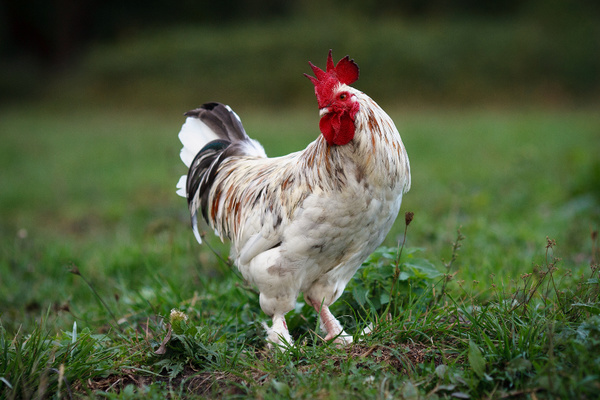
Хочу спросить,кто то читает французский текст?Может перевод сделает поста вверху?Для чего французский текст на русском форуме?
Сразу видно как отличаются сплеш с медью и серебром.